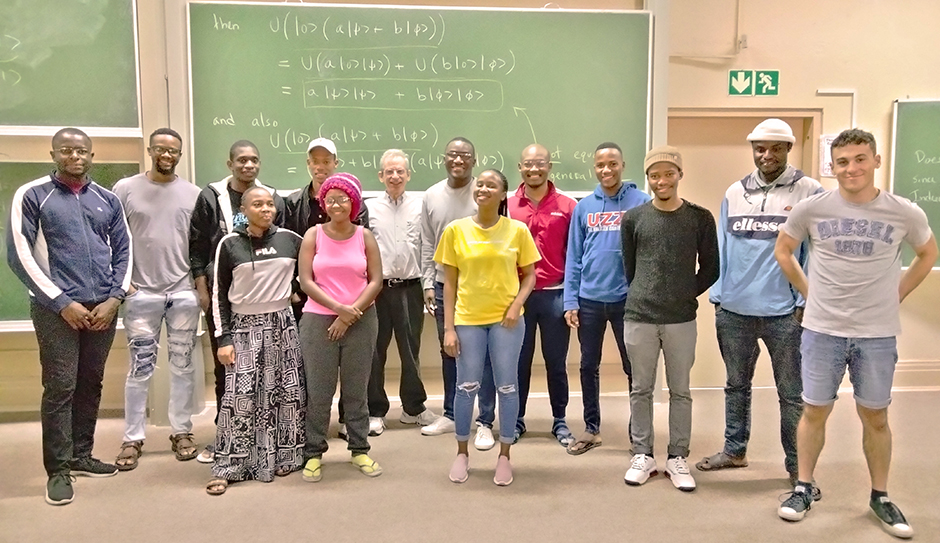Rafael Nepomechie, a theoretical physicist from the Department of Physics in the College of Arts and Sciences, is one of over 400 instructors from the U.S. chosen to participate in the Fulbright Specialist Program, which is designed to foster academic achievement through teaching and exchanging ideas and research around the globe.
Now on his fourth Fulbright-sponsored program in Africa, Nepomechie is now a visiting lecturer teaching a three-week course at the African Institute for Mathematical Sciences (AIMS), a pan-African center for post-graduate studies in science, technology, engineering, and math (STEM) training.
“I am fortunate that this will be my eighth time since 2008 teaching at AIMS. It’s an amazing institution,” said Nepomechie. “At AIMS, the students and lecturers live in the same building, and in just a few days, you’re learning everyone’s names and becoming a part of the AIMS family.”
Established in 2003, the AIMS network, whose slogan is “We believe the next Einstein will be African,” currently operates centers in five countries in the African continent: South Africa, Senegal, Ghana, Cameroon, and Rwanda.
Nepomechie is currently teaching at the AIMS center located near Cape Town, South Africa. Each year, AIMS centers welcome (at no cost) approximately 50 students with undergraduate degrees in the sciences for an intense 10-month master’s level program. Since its inception, AIMS has graduated close to 2,000 students from 43 African countries; 32 percent of the graduates are women.
While at AIMS, Nepomechie is teaching a rigorous course on quantum computing, which he says is a “pretty hot topic right now and quite relevant for the AIMS students.” He has taught a similar course at UM.
“This is now my second time teaching this course at AIMS, and the students are always engaged and very interested in the topic. Some of my former AIMS students are now pursuing a Ph.D. on this topic. Basically, I’ll be sharing methods to develop programs that run on quantum computers, which may someday outperform regular computers,” added Nepomechie.
Kutlwano Othomile, a student from Botswana who is currently taking Nepomechie’s course, says, the experience is truly amazing. “We’ve really tackled some mind-blowing discoveries and concepts of what the future of quantum computing holds.”
Denzel Spencer Ngwenya, a student from Zimbabwe, agrees: "Investing in Quantum Computing may be the solution to African problems,” he said.
One of Nepomechie’s goals is to establish a partnership between AIMS and the University of Miami. AIMS has developed a “culture of collaboration” with top institutions of higher learning around the globe to enhance scientific discovery, knowledge, and learning. Partnerships can include faculty and research exchange programs, post AIMS scholarships, as well as conferences and workshops.

